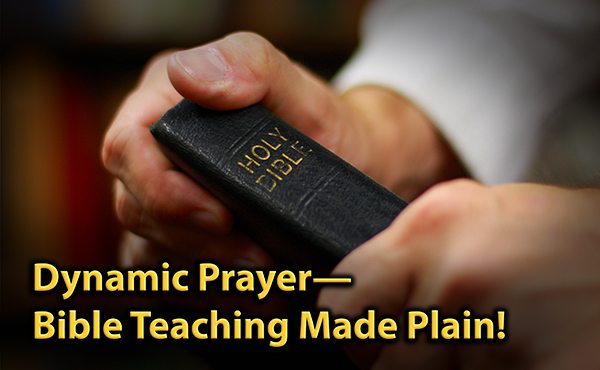 Getty Images
Getty Images
Article
Learn the why behind the headlines.
Subscribe to the Real Truth for FREE news and analysis.
Subscribe NowAnother typical day: You wake up, log on to your computer or tablet, or check your smartphone. After opening Facebook, or a similar social media service, you read the latest items posted to your newsfeed.
Glancing through, you see that a childhood friend discovered she has been diagnosed with a life-threatening disease. This is terrible news. Unless a miracle occurs, she says, she will most likely die in a matter of weeks.
As you scroll farther down, you learn that a family member continues to battle six months without work—with children to feed and a looming home foreclosure. Again, more terrible news.
Your morning update is rounded out by news of a bloody car accident that occurred overnight not far from your home.
The Bible sums up how we should deal with such day-to-day realities: “In the day of prosperity be joyful, but in the day of adversity consider: God has also set the one over against the other, to the end that man should find nothing after him” (Ecc. 7:14).
Life happens. Sometimes we experience pleasant surprises. Other times, we feel like we are trapped between a proverbial rock and hard place—with no room to wiggle free or even breathe. This is the nature of our mortal lives.
No wonder surmounting pressure and unrelenting anguish can move some of us to the point of desperation. We want RELIEF! We want to ease our pain. Therefore, we look for ways to end the misery. And often, we turn to religion to give us comfort.
In this age of social media and text messaging, people sometimes rush to explain their problems to any who will listen. They type or sometimes even cry out, “Pray for me!”
Public requests for prayers in the wake of tragic circumstances happen often. They are no doubt sincere and heartfelt.
Yet is this the right way to receive intervention from God?
Biblical Backing?
Turning to God in hard times is understandable. Perhaps some Bible verses come to mind.
Jesus stated, “Ask, and it shall be given you; seek, and you shall find; knock, and it shall be opened unto you” (Matt. 7:7). Also, I Peter 5:7 states: “Cast all your anxieties on Him, for He cares about you” (Revised Standard Version).
Beyond individual supplications to God, the New Testament is filled with requests for prayers.
- I Thessalonians 5:25: “Brethren, pray for us.”
- II Thessalonians 3:1: “Finally, brethren, pray for us…”
- Hebrews 13:18: “Pray for us…”
There is more. James 5:16 tells Church members to “pray one for another” and Colossians 4:3 tells brethren to continue “praying also for us.”
In addition, the “Lord’s Prayer” is all plural, making it a command that we should pray for others: “Our Father,” “Give us this day our daily bread,” “forgive us our debts,” “lead us not into temptation,” and so on.
Clearly, the Bible condones requesting prayers from others. The next question then becomes: Is this all there is to having prayers answered?
Reasoning Together
The Bible states, “Come now, and let us reason together, says the Lᴏʀᴅ” (Isa. 1:18). Scripture reveals a God who is more than reasonable, and whose will or purpose in this matter can be understood if we simply practice a most vital step in Bible study: Let the Bible interpret itself.
Examining common religious teachings, however, reveals that few are willing to do this.
For example, when the Bible quotes Jesus Christ saying, “And no man has ascended up to heaven, but He that came down from heaven, even the Son of man which is in heaven” (John 3:13), we need to ask, “Why do most ministers teach that people go to heaven when they die?” To twist this verse into saying something it does not is disingenuous.
The same principle applies to prayer.
In Matthew 6, Christ lays the groundwork for how people should pray. He states: “And when you pray, you shall not be as the hypocrites are: for they love to pray standing in the synagogues and in the corners of the streets, that they may be seen of men. Verily I say unto you, They have their reward. But you, when you pray, enter into your closet, and when you have shut your door, pray to your Father which is in secret; and your Father which sees in secret shall reward you openly” (vs. 5-6).
Christ said that when prayer occurs, it should be in a private place. Personal prayers should not be done in public for all to hear or proclaimed in the “corners of the streets, that they may be seen of men.”
Continuing in verses 7-9, He states: “But when you pray, use not vain repetitions, as the heathen do: for they think that they shall be heard for their much speaking. Be not you therefore like unto them: for your Father knows what things you have need of, before you ask Him.”
The beginning of what is called the “Lord’s Prayer” then starts, “After this manner therefore pray you…”
When we allow Scripture to interpret itself, we see that “after this manner” in the original Greek text in which the verse was written means “thus, in this way.” Christ intended verses 9 through 15 of Matthew 6 to be applied as a general outline—a means to expand and personalize our day-to-day prayerful conversations with God.
Despite this clear statement, why do millions—even billions—assume that Christ meant our prayers should recite word-for-word the now famous “Lord’s Prayer”?
Praying is simply a way to initiate a personal, intimate, one-on-one verbal communication between you and God. (Similarly, studying the Bible is, in effect, allowing God to “converse” with us.) It should be done in private, on your knees, and should follow a certain pattern.
So how does this apply to praying for others?
More Than a Wish List
Following this outline is just the first step to having your prayers answered. It also requires action—both on your part and those for whom you are praying.
In Matthew 6:33, Christ made a promise: “But seek you first the kingdom of God, and His righteousness; and all these things shall be added unto you.” This ironclad promise is an important key to having our prayers answered and our needs met.
Jesus Christ acknowledged we have daily needs, yet He tells us, “Therefore take no thought, saying, What shall we eat? or, What shall we drink? or, [How] shall we be clothed?” (vs. 31).
Within this verse, however, He also made a bold statement: prayer is conditional.
Unemployment—losing one’s home—failing health—whatever the problem, we can claim God’s promise that He will deal with our problems IF we put His Kingdom (the gospel—Mark 1:15) and His righteousness (living His Law—Psa. 119:172) first and foremost in our daily lives. This requires obeying the laws He has set in place.
This is what most miss. To have prayers answered, a person requesting prayers, though sincere, must be seeking to live God’s Way. It is that simple.
Yet praying for others is something that Christ does want us to do—in the proper context.
Recall James 5:16 in which the author tells Church members to “pray one for another.” In Thessalonians, Paul calls those he asks for prayers “brethren.” This means that those asking for prayers were Church members who were all striving to live God’s Way and obey His commandments. Those requesting prayers knew this and followed this principle. This is why they prayed for one another.
Nonetheless, God does not want us to merely relay a wish list of “gimmes.” He wants us to first spend time honoring Him and then make requests for ourselves or others. Otherwise, we treat the Creator of the universe like a genie in a magic bottle who grants wishes to any who ask—and this trivializes prayer.
This naturally begs the question: “If we do our part, how do we know God will keep His promise?”
First, it is impossible for God to lie (Titus 1:2), even once.
Next, we can turn to the Bible definition of faith, as described in Hebrews 11: “Now faith is the substance [confidence, guarantee] of things hoped for, the evidence [proof, conviction] of things not seen” (vs. 1).
Contrary to popular thinking, faith is not an empty, well-meaning word that goes nowhere. It is a vital trait that God looks for in His people. Notice verse 6: “But without faith it is impossible to please Him: for he that comes to God must believe that [1] He is, and [2] that He is a rewarder of them that diligently seek Him.”
Faith requires action.
Be Sure Your Prayers Are Heard
We must be very careful not to trivialize prayer. Recognize that Christ—God Himself—not only instructed us on how to pray but also Himself prayed on a regular basis. He took the time to talk to His Father and seek His will.
There is a God on the other side who listens when we pray. He has the power and ability to act. But it is up to us to help determine whether He will.
God inspired the apostle James to record: “Confess your faults one to another, and pray one for another, that you may be healed. The effectual fervent prayer of a righteous man avails much” (Jms. 5:16). It is this kind of prayer—one that is genuine, heartfelt and given by a person actively seeking to live God’s way of life—that gets His undivided attention and stirs Him to action.
If you would like to learn more about how to expand your prayers and communication with God, read our free article “The Keys to Dynamic Prayer.” Or view our World to Come broadcast Dynamic Prayer—Bible Teaching Made Plain!



